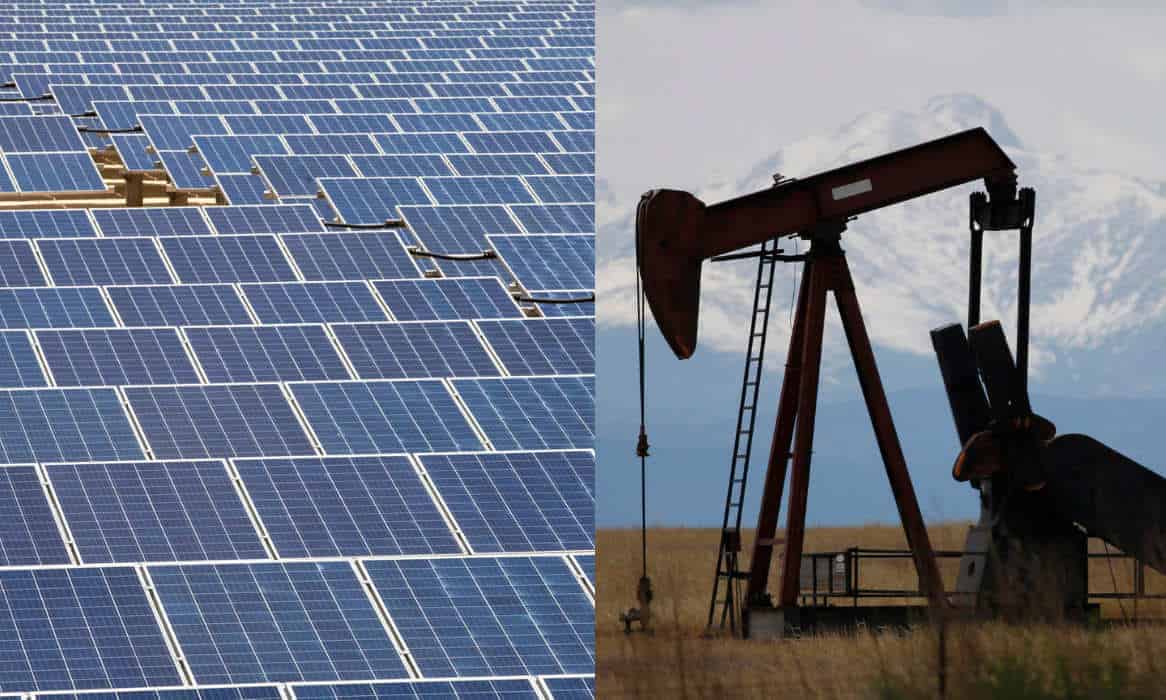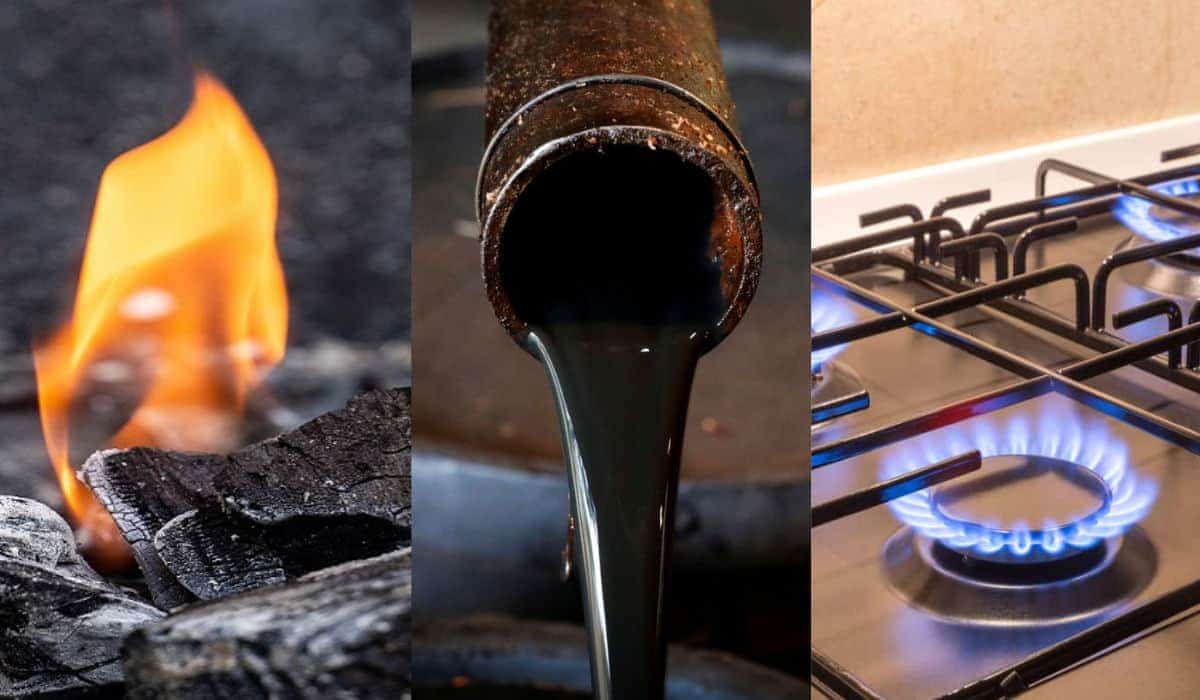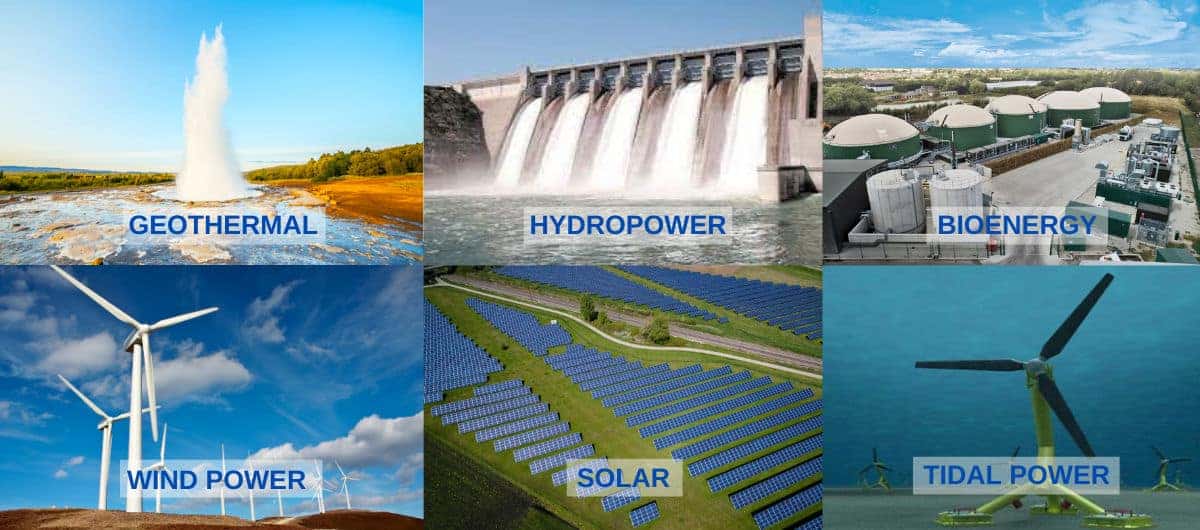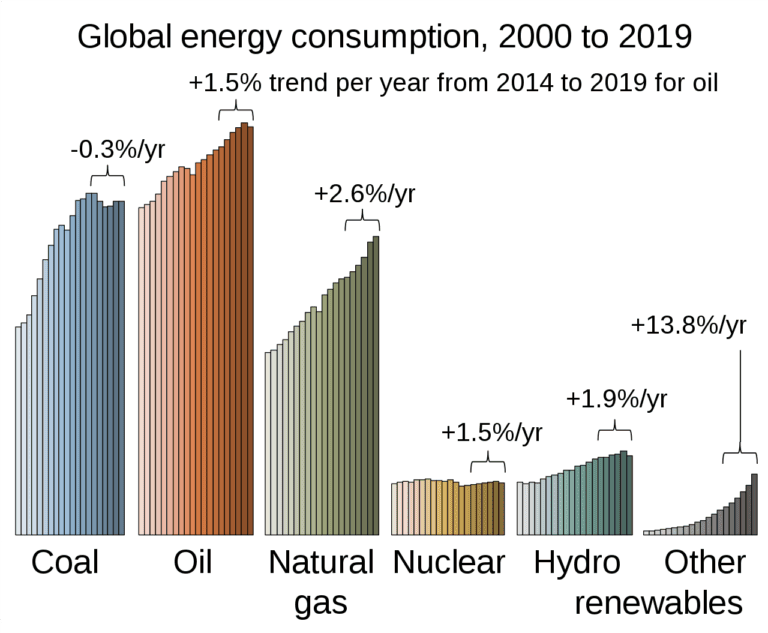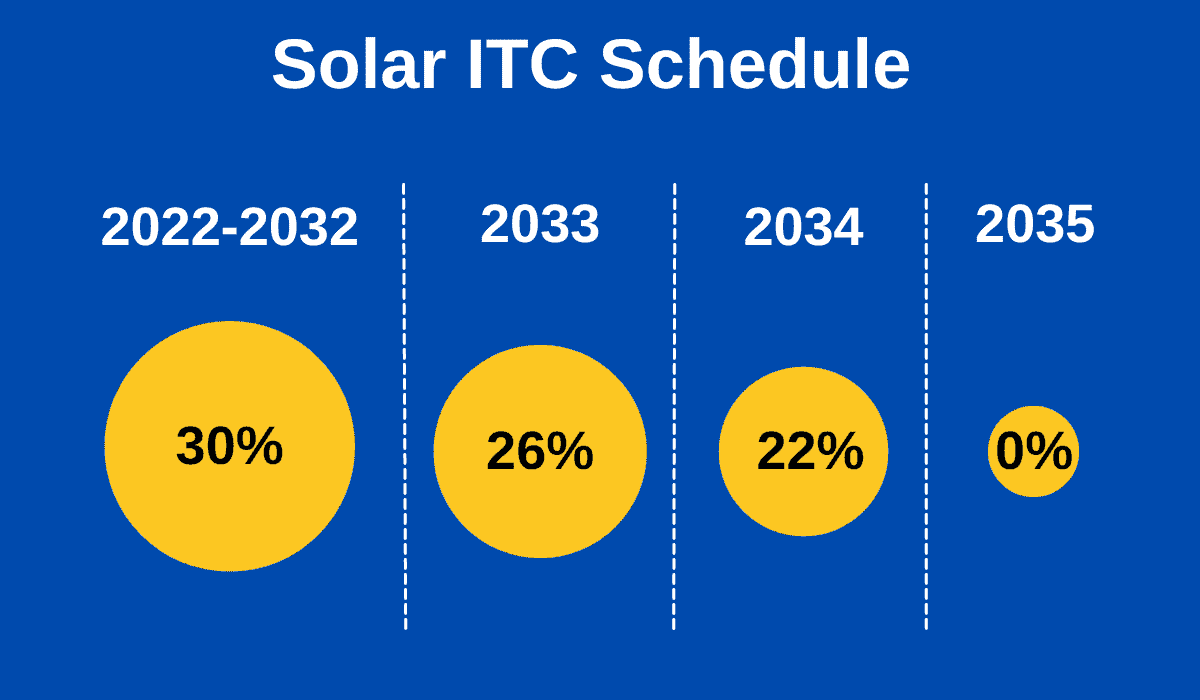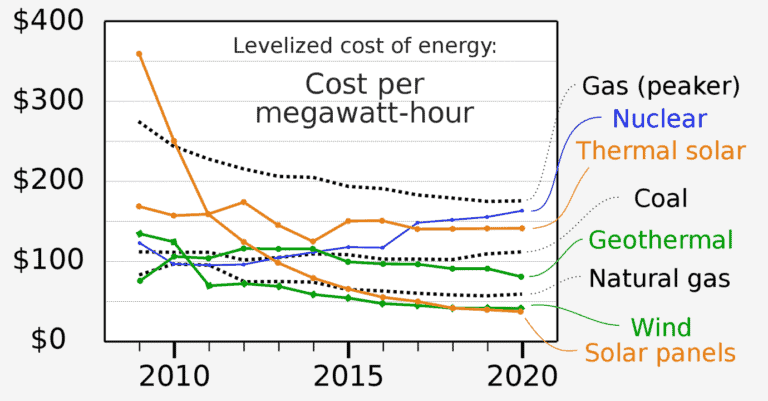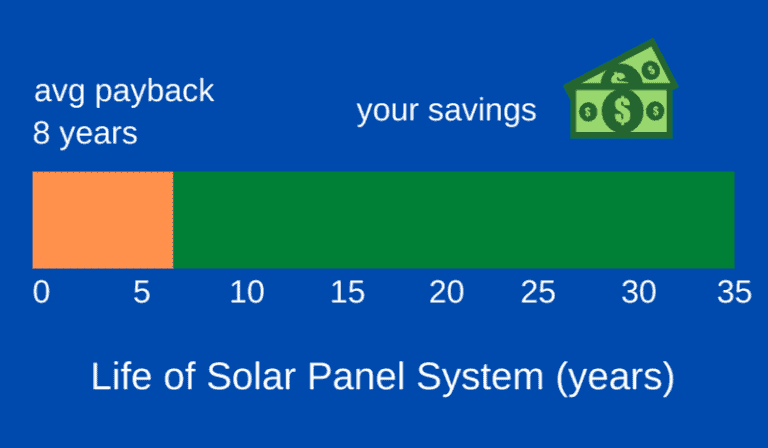Have you installed solar yet? If you’re reading this, it’s likely that you are considering doing so, which is a wise consideration. Recently, advances in home solar technology have reached a level where installing solar panels can lead to significant savings.
But before we get carried away, let’s start at the beginning. Why has solar energy become so popular, and how does it compare to traditional fossil fuels? Let’s ring the bell and start the first round as I take you through the reasoning and arguments behind solar energy vs fossil fuels.
What are fossil fuels?
Fossil fuels are coal, oil, and gas. They are deposits created by the decomposition of ancient plants and animals. In the past, these materials were a readily available resource that we used to fuel the Industrial Revolution and subsequent human development.
Coal, oil, and gas are materials that give off a lot of energy when we burn them. We still generate most of our electricity using these resources. However, the problem is that they are non-renewable resources. Once depleted, these resources cannot be replenished, and unfortunately, they are being depleted rapidly.
What is renewable energy?
Renewable energy is energy that we can use and then replace within a reasonable time so that we can use it again. Examples of renewable energy sources that we are developing include geothermal, hydropower, wind power, tidal power, bioenergy, and, last but not least, solar power.
Benefits of using renewable energy
there are lots of positives to using solar and other renewable energy resources, but there are some issues too. Let’s take a look at how solar power fares against fossil fuels.
A constant resource
One of the main benefits of producing energy from renewable resources is that it doesn’t run out. However, due to the past abundance and low cost of fossil fuels, as well as their ease of use, most of our energy production still relies on them.
Lower or zero CO2 emissions and pollution
I’m sure you’ve heard that the world is heating up, and this is a very bad thing indeed. If we don’t do anything about it, sea levels will rise, and extreme weather will change our way of life. Global warming is no longer a matter of debate; it’s a widely accepted fact across the entirety of the world’s scientific community. Forecasts are grim, and finding ways to deal with the causes of global warming is one of the most significant issues facing humanity today
When we burn fossil fuels, they release carbon dioxide (CO2), which is one of the leading causes of global warming. So changing our primary sources of energy generation away from fossil fuels to renewable energy sources is one of the world’s main priorities.
But there’s a long way to go, as the diagram above shows. Coal, oil, and natural gas still form the backbone of our energy industry. However, it’s encouraging to note the rapid growth of other renewables, including solar power; in 2019, the annual year-on-year increase in renewable energy consumption was 13.8%.
Rapid progress is being made as the technology driving renewable energy sources improves rapidly, and solar power is at the leading edge of these technological advances.
Hang on, I’ve heard that solar power also involves CO2 emissions.
Critics of renewable resources such as solar power point out that they cause CO2 emissions and use nonrenewable resources. And, guess what, it’s true.
The materials that go into solar installations must be mined, manufactured, and transported, and all of these processes have an environmental impact and release CO2.
But, and this is really important, the working life of a home solar system is around twenty-five years. So the relatively small impact of producing a home solar system has to be compared to the savings of twenty-five years worth of solar energy weighed against burning fossil fuels for all that time.
There’s just no comparison. Despite the expensive publicity efforts of the fossil fuel industry, there’s just no denying that solar power is a far cleaner and environmentally friendly energy source.
Government incentives
As part of international agreements to reduce carbon emissions, many governments, including the US government, offer significant incentives to use solar power and other renewable energies.
What this means to you is that there are a number of excellent incentives on offer that help you to subsidize your home solar installation.
At the moment, the federal government is offering an excellent tax rebate scheme that allows you to claim back a massive 30% of the cost of home solar installation as a tax rebate.
There are additional rebates and incentives on offer from many states, districts, and utilities. It’s a great idea to check what’s available in your area.
Given that home solar installations are very frontloaded, with most of the costs related to installing the system and many more running costs for a very long life cycle, government incentives have persuaded millions of US homeowners to go with a home solar system.
Energy costs
One of the traditional arguments against solar power was its inefficiency. Solar panels use photovoltaic technology to convert sunlight into electricity through the photovoltaic effect, a physical process.
You need some pretty sophisticated technology to get solar cells to work well. And until recently, solar panels were, frankly, pretty bad at their job. But solar technology has lept forward in recent years, and things are very different today. Take a look at the diagram below.
You can see that between 2009 and 2019, solar panels have gone from being the most expensive of all energy sources to the cheapest. This is an astonishing development and a compelling argument that now is the time to invest in a home solar system.
What does this mean for the costs of home solar versus mains electricity
all this talk of energy costs is interesting, but it doesn’t speak directly to the energy savings you can make as a homeowner, so let’s take a look at that.
At an individual level, we can’t compare solar energy vs. fossil fuels. Instead, we need to look at what you’ll save on your main electricity costs by installing a home solar system. You work that out by working out the payoff period as follows:
Pay-off period = (cost of the system – rebates) ÷ annual energy savings
The average payoff period of a home solar installation in the US is eight years.
The average life of a home solar system in the US is twenty-five years.
So the average US home solar system produces electricity for seventeen years without any additional costs.
I think that’s pretty unequivocal. Home solar systems save you money. They help you, and they help the environment so that you can feel good about yourself and your wallet at the same time.
Solar Energy vs Fossil Fuels
there’s a lot to take in there, so let’s summarise the main points of this discussion in a table and see which energy source comes out on top.
| Issue | The main points | Winner |
| Renewable resource | Solar power is a constant resource, and the sun will burn for another 5 billion years; it’s not going away. Fossil fuels will be exhausted in decades. | Solar energy |
| Pollution and carbon emissions | Burning fossil fuels is a significant contributor to global warming and has a huge environmental impact. The manufacture of solar systems does create some CO2 emissions and pollution but this is offset by their long pollution-free working life | Solar energy |
| Government incentives | Federal and local governments across the USA offer a range of excellent incentives and rebates that significantly reduce the cost of home solar installations. | Solar energy |
| Cheap energy production | Over the past ten years, tremendous advances in photovoltaic solar technology have taken solar power from being the most expensive source of energy production to the cheapest | Solar energy |
| Is solar power cheaper than mains electricity | It takes a US household just eight years on average to pay off their home solar installation costs with energy savings allowing them to enjoy free solar electricity for the remaining seventeen-year life of their solar system | Solar energy |
It seems that there is a clear winner in this contest. Solar energy is a young, fit, and strong competitor and one of the leading sources of renewable energy. Even better solar is improving all the time. In comparison, fossil fuels are like an old punchdrunk boxer whose best fights are way in the past.
With excellent incentives to help persuade you to take the plunge, there’s never been a better time to invest in a home solar system than now.
If you have any comments or questions regarding this discussion of solar energy versus fossil fuels, please share them with us.

